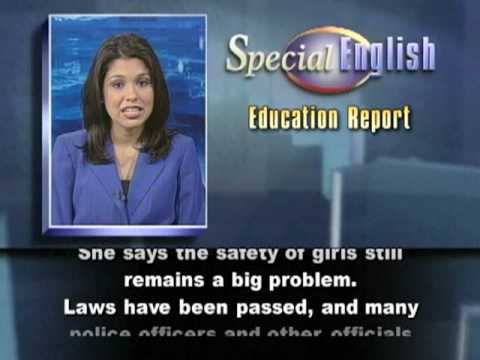Before the G-20 Summit, a 'G(irls)20 Summit' in Toronto
 |
This is the VOA Special English Education Report, from voaspecialenglish.com | facebook.com/voalearningenglish
Leaders of the world's twenty largest economies met for three days starting June twenty-fifth in Toronto, Canada. The Group of 20 discussed the best ways to guide the world economy to a stronger recovery. The G-20 is nineteen countries and the European Union. Before the meeting, in Toronto, international charities held the first-ever G(irls)20 Summit. The goal was to bring the economic power of girls and women, and the importance of women's issues, to the attention of G-20 leaders. Organizers invited twenty young women from each of the G-20 member countries. They discussed the United Nations Millennium Development Goals and better ways to meet them. The goals include cutting poverty, improving access to health care and providing education to all children. Nineteen-year-old Anwar Basunbul from Saudi Arabia said many Saudi women are interested in working. But they need permission from their husband or other male guardian. And there are restrictions on the professions they can join. She says her culture still believes that men are biologically more qualified to lead or rule women.She says the Saudi leadership has not failed women; Saudi women have not yet asked for what they want.Irem Tumer was the nineteen-year-old representative from Turkey. She says Turkey has approved many legal reforms as part of its efforts to join the European Union. But these have not necessarily been put into action. She worries about violence against women.She says the safety of girls still remains a big problem. Laws have been passed, and many police officers and other officials are being trained about this. But more widespread awareness and education for all girls is necessary to solve this problem. Irem Tumer said she would carry home two messages from the G(irls)20 Summit. The first is the need for education. The other is the need to empower women and let them take part in business and political decision-making. The United Nations estimates that females age ten to twenty-four are one-eighth of the world's population. Many of them are the main providers for their families. Yet, in the developing world, many are unable to enjoy even the most basic human rights. And that's the VOA Special English Education Report. You can read, listen and comment on our reports at voaspecialenglish.com. We're also on Facebook, Twitter and iTunes at VOA Learning English.
(Adapted from a radio program broadcast 24Jun2010)
|




